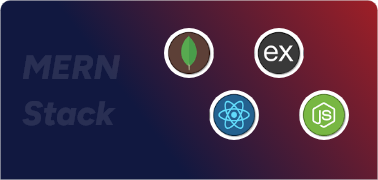MongoDB: A NoSQL database that uses a flexible, document-oriented data model, making it easy to store and manage data in JSON-like documents.
Express.js: A back-end web application framework for Node.js, providing a robust set of features for building web and mobile applications.
React.js: A front-end JavaScript library developed by Facebook for building user interfaces, known for its component-based architecture and reusability.
Node.js: A server-side JavaScript runtime environment that allows developers to run JavaScript code on the server, enabling the use of JavaScript for both client-side and server-side development.
Full-Stack Development: MERN enables developers to work seamlessly across the entire application stack, from the front-end to the back-end, using JavaScript throughout.
Single Page Applications (SPAs): React.js in MERN facilitates the creation of SPAs, where content is dynamically loaded and updated without full page reloads, providing a smoother user experience.
Scalability and Flexibility: MongoDB’s schema-less design and Node.js’s non-blocking architecture allow MERN applications to handle large amounts of data and scale effectively.
Community and Ecosystem: MERN Stack benefits from a large and active community, offering extensive libraries, tools, and resources to streamline development and solve common challenges.
Modern Web Development: MERN is favored for its modern development approach, enabling rapid prototyping, efficient collaboration between front-end and back-end teams, and deployment of responsive and interactive web applications.
Popularity and Adoption: Due to its simplicity, flexibility, and performance, MERN Stack has gained widespread adoption among developers and is widely used in startups, enterprises, and tech companies globally for building robust and scalable web applications.

